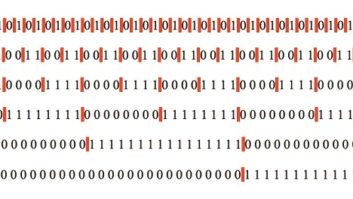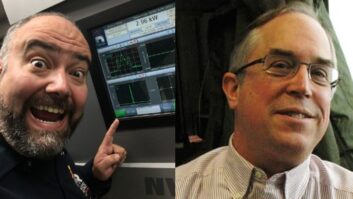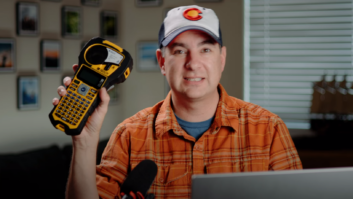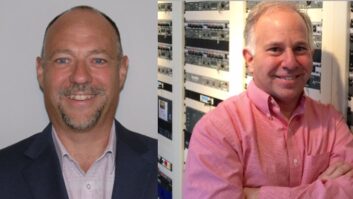I read your article with interest.� It has a pertinent focus on �who/what is an engineer.�
First, a little background on the way it was.
It was 1963; I was 19.�I studied on my own; night after night; falling asleep holding the text book for getting my FCC license. There were three stages of licensing beginning with the Third Class FCC License and topping off with FCC First Class License. Back then you were required to have a license to service broadcast radio and TV and two-way transmitters.
Now let us jump forward: It was the late 1970s, when Mark Fowler was appointed as FCC commissioner. Things changed because of him and his personal agenda. I�ll explain:
Shortly before Fowler�s decommissioning of FCC licensing for broadcast engineers, I had the privilege of having one of my stations inspected by George Schlom (sp?).
George was the engineer in charge of the Chicago field office for over 20 years and had just been demoted to �field work� by FCC Chairman Mark Fowler.
George gave his best �white glove� inspection � an inspection that most of todays stations would not pass! Afterward, we chatted, and he told me the story of what was about to happen with Fowler at the helm of the FCC. This is �first-hand� from George.
�
- George stated that Mark Fowler had a broadcasting background and didn�t like engineers!
- Fowler was going to decommission the requirement for broadcast engineers to be FCC-licensed � no testing will be done by the FCC to verify broadcast engineering knowledge.
- To keep the peace, FCC Second Class and First Class Commercial Radio Telephone Licenses would be given the opportunity to request conversion of their licenses to a �General Class License.� Anyone could be appointed the responsibility, at a station, as �chief operator.� The entry level testing for the FCC Third Class operator’s license would be changed � it would become an �operators permit� that could be attained by filling out a simple form and sending it to the FCC field office. No testing for the �operators permit� was required.
�
So, as of today anyone can service and maintain broadcast equipment. No special training or certification is required.�
I believe that there is an FCC requirement that any work performed on a broadcast transmitter by an individual not having a �General License,� must be certified by someone holding a FCC �General Radiotelephone Operators License.� If that is still the case, it is not enforced!
So, there you have it: I experienced this process and noticed that many licensed individuals (using their licenses as a �free lunch,� so to speak) left the broadcast industry. They were replaced by largely �untrained and uncertified� individuals who continued to absorb the title �engineer.�
Back in the 1970s, George asked me, �How do you feel about what is about to happen?�
I remarked, �Well, George, I worked and studied hard to get my license, but this will cull out those that have the license as their �free lunch.� Those of us who are serious about broadcasting will have more work available than ever before.�
I was right.
I am now 73 years old (with 54 years working in the broadcasting support business) and find that one must be willing to accept change.�
Those who only hang their hat on a title are the Mark Fowlers of the world and serve the purpose to make an impact without a positive effect.
I feel that people can �call me what you want � the real question is, can I do the work?� This attitude has kept me in the business and helping those that need help. Jealousy and titles, for the sake of status alone, won�t make you valuable or useful to others.
Take care and remember: Be prepared for change and realize that only your capabilities and �real reputation of performance� will make you valuable to others (broadcasters).
Frank Hertel is partner at Newman-Kees-Hertel RF Measurements & Engineering.
�












